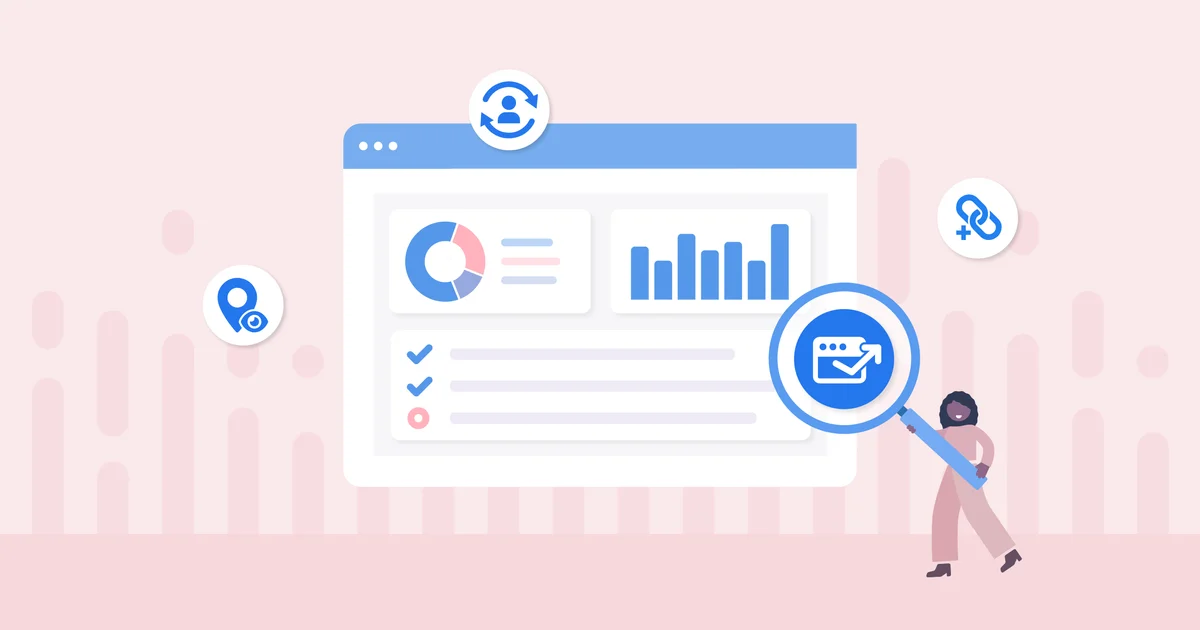Local SEO (Search Engine Optimization) is a digital marketing strategy that optimizes a website’s visibility for local searches. Local SEO aims to rank high in local search engine results pages (SERPs) so that local customers can find your business easily.
Local SEO involves optimizing your website and online presence for local search queries related to your business. Local search queries include location-based keywords such as “near me,” “in [city name],” or “in [neighborhood name].” Local SEO also involves optimizing your Google My Business (GMB) profile, local citations, and local backlinks.
Here are the key elements of Local SEO:
Google My Business

Google My Business is a free online tool that allows you to manage your online presence across Google, including search and maps. A properly optimized GMB profile can help you rank higher in local search results. It’s essential to fill out all the information about your business, such as name, address, phone number, website, and business hours.
Local Citations
A local citation is any online mention of your business’s name, address, and phone number (NAP). Local citations and consistent NAP are essential for local SEO as they help establish your business’s credibility and legitimacy. Ensure your NAP is consistent across all online directories and citations.
Local Backlinks
Local backlinks are links from other websites that point to your website. These links are crucial for local SEO because they indicate to search engines that your website is a trusted and authoritative source of information. Focus on getting backlinks from local businesses and directories to boost your local SEO.
Local Content
Creating local content, such as blog posts or videos, can help establish your business’s relevance and authority in your local area. Ensure your content includes relevant keywords and topics related to your local area.
Reviews
Reviews are critical for local SEO, as they provide social proof of your business’s credibility and quality. Encourage your local customers to leave reviews on your Google My Business profile or other online review platforms.
Local SEO is a complex process that requires ongoing effort and optimization. Implementing the above tactics can improve your local SEO rankings and attract more local customers.
Benefits of Local SEO
Local SEO can provide several benefits for businesses to attract more local customers.
Here are some of the key benefits of local SEO:
Increased Visibility
Local SEO can help increase your visibility in local search results, making it easier for potential customers to find you when they search for relevant keywords related to your business.
Targeted Traffic
Local SEO can help drive targeted traffic to your website from people in your local area actively searching for products or services like yours.
Improved User Experience
A well-optimized local SEO strategy can help improve the user experience for your website visitors. It includes having accurate and up-to-date information about your business, such as your address, phone number, and business hours.
Increased Credibility
A strong local SEO presence can help establish your business as a credible and trustworthy source of information. It can be achieved through local citations, reviews, and backlinks.
Cost-Effective Marketing
Local SEO is a cost-effective marketing strategy compared to traditional advertising methods. It can help businesses reach a large audience of potential customers without the high costs associated with print, radio, or television advertising.
Competitive Advantage
A strong local SEO strategy can help you stand out from competitors who may not have optimized their online presence for local search. You can take the help of professional local SEO services to create a local SEO strategy.
How does Local SEO Work?
Local SEO works by optimizing a business’s online presence to make it more visible to potential customers searching for products or services in their local area.
Here are the steps involved in local SEO:
Keyword Research
The first step in local SEO is to conduct keyword research to identify the local search terms, LSI keywords, and phrases that potential customers use to find businesses like yours in your local area. It helps optimize your website and other online properties for those keywords.
Google My Business Optimization
Google My Business (GMB) is a free online tool that allows businesses to manage their online presence on Google. Optimizing your GMB profile is critical to local SEO success. It involves filling out all the relevant information, including your business name, address, phone number, website URL, and business hours.
Local Citations
Local citations mention your business’s name, address, and phone number on other websites and online directories. These citations help establish your business’s credibility and legitimacy locally. Ensuring that your business name, address, and phone number are consistent across all citations is critical for local SEO.
On-Page Optimization
On-page optimization involves optimizing the content on your website for the keywords and phrases identified in the keyword research phase. It includes optimizing page titles, meta descriptions, and content to make it more relevant to local search queries.
Local Link Building
Local link building involves getting other local businesses or organizations to link to your website. It helps to establish your business as a trusted and authoritative source of information in the local area.
Review Management
Reviews are important in local SEO, and managing them effectively can help improve your search rankings. Encouraging local customers to leave reviews on your Google Business Profile (GMB) profile and responding to them promptly can help build credibility and trust with potential customers.
Local Content Creation
Creating different content types related to local content, such as blog posts, videos, and infographics, can help establish your business’s relevance and authority in the local area. This content should be optimized for local keywords and topics related to your business.
Monitor Changes
Here are some steps local businesses can take to monitor and exploit changes in Google’s local search:
Stay Up-to-Date with Google’s Changes
Keeping up-to-date with Google’s SEO algorithms and updates related to local search and SEO is critical. It can be achieved by following top industry SEO blogs, attending webinars and conferences, and subscribing to Google’s official blogs and forums.
Monitor Local Search Results
Regularly monitoring local search results for your business’s keywords and phrases can help you stay aware of any changes that may affect your rankings. Tools like Google Search Console, SEMrush, and Moz Local can be used to track your local search rankings and identify any changes.
Analyze Your Local Competition
Analyzing your local competition can help you identify any changes they are making to their local SEO strategy and exploit any weaknesses they may have. Tools like SEMrush and Ahrefs can analyze your competitor’s backlink profiles, keyword rankings, and content.
Optimize for Google My Business Features
Google My Business offers several features businesses can optimize to improve their local search rankings, such as Google Posts, Q&A, and reviews. Staying up-to-date with these features and optimizing them can help improve your visibility in local search results.
Focus on Mobile Optimization
With more and more people searching for local businesses on their mobile devices, optimizing your website for mobile is critical. It includes having a mobile-friendly website, optimizing for voice search, and ensuring your Google My Business profile is optimized for mobile devices.
Spam Fighting
Spam fighting in local SEO involves identifying and reporting spammy or fraudulent activity that can negatively affect your business’s local search rankings.
It includes reporting fake reviews, removing duplicate listings, and reporting businesses, not in the area they claim to be.
Google My Business has a built-in tool for reporting spammy activity, and businesses can also report spammy activity to other search engines and online directories.
Local SEO Reporting
Local SEO reporting involves tracking and analyzing your business’s local search performance over time. It includes tracking your local search rankings, monitoring your website traffic and engagement, and analyzing your Google My Business insights.
Regular reporting can help identify areas for improvement and adjust your local SEO strategy accordingly. Tools like Google Analytics, Google Search Console, and third-party SEO software can be used for local SEO reporting.
Conclusion
Local SEO is a crucial strategy for businesses to attract more local customers and improve their online visibility.
By optimizing your online presence for local search queries and leveraging tools like Google My Business, businesses can improve their search rankings and attract more customers in their local area.
Monitoring and exploiting changes in Google’s local search algorithms and features, spam fighting, and local SEO reporting are also important aspects of a successful local SEO strategy. By implementing these tactics and staying up-to-date with the latest trends and best practices in local SEO, you can establish yourself as a trusted and authoritative source of information in your local community and attract more local customers to your local business.






